I used to have this colleague who almost exclusively spoke to me in Dutch expressions. Now of course, some would see this as charming, perhaps even educational, or a nice throw back to the times when our grandmothers spoke of the importance of stitches in time and referred to elusive characters such as the Queen of Sheba and Riley (what was so bad about leading Riley’s life anyways?!). The problem was that my colleague spoke in Dutch expressions haphazardly translated into his own unique English versions.
[divider]Now the monkey comes out of the sleeve![/divider]
The result was a trail of bizarrely strung together words that senselessly hung in the air and required my constant nod and smile of approval/understanding. Many a mornings were spent hearing about cows being pulled out of ditches, tall tulips getting their heads chopped off and monkeys (yes, monkeys!).
After relentless exposure to such Dunglish phrases I began to notice a pattern: all Dutch expressions can be grouped together in 3 main categories:
1) expressions relating to farm life (i.e: involving beloved Dutch cows, farmers, fields, windmills, etc.). Oh how cliché!
2) expressions relating to the endearing Dutch weather (i.e: involving wind, rain, sun or sea).
3) expressions that make no sense at all (i.e.: examples to follow)
Of course if you knew me, you’d know that the latter is indeed my favourite. Once you’ve heard yet another Dutch expression about the weather, you’ve heard them all (Voor niets gaat de zon op, Na regen komt zonneschijn, and so on…)!!
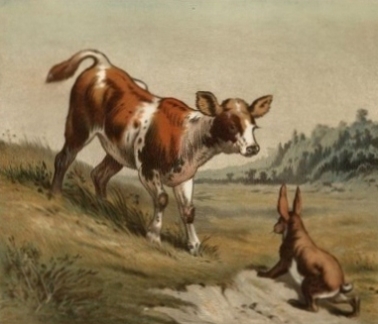
How does a cow catch a hare?
The ones that tickle my fancy are the truly bizarre:
– Als de hemel valt, krijgen we allemaal een blauwe pet
(Translation: If the sky/heaven should fall, we will all be wearing blue caps/hats). Huh?? Say what?? Can you clarify, as I’m not sure that would indeed be the case… 😉
or how about stating the obvious:
– Als het regent in september, valt kerstmis in december
(Translation: If it rains in September, Christmas will be in December). Well now, you Dutch seem to be a pretty smart folk! Gosh darn it, I didn’t realize that was why Christmas seemed to be in December, e-v-e-r-y year!
or how about the always useful:
– Helaas, pindakaas
(Translation: Oh well, peanut butter). No explanation needed, right? Right?!
Some I still can’t wrap my head around and I will admit I certainly can’t hold back a giggle when a well-meaning Dutch person casually translates one of the below in English and carries on speaking as if it was the most normal thing in the world.
I’ve been in many a meeting when someone has announced “Well now the monkey comes out of the sleeve” or “You can’t make chocolate from it!” I used to ask for an explanation, but I’ve since learned that often one doesn’t exist. You, well, just can’t make chocolate from it…
I’ll leave you with some very wise words of Dutch wisdom, one which I always try to follow: He who has butter on his head, should stay out of the sun! Got it?!? Good! Now carry on!
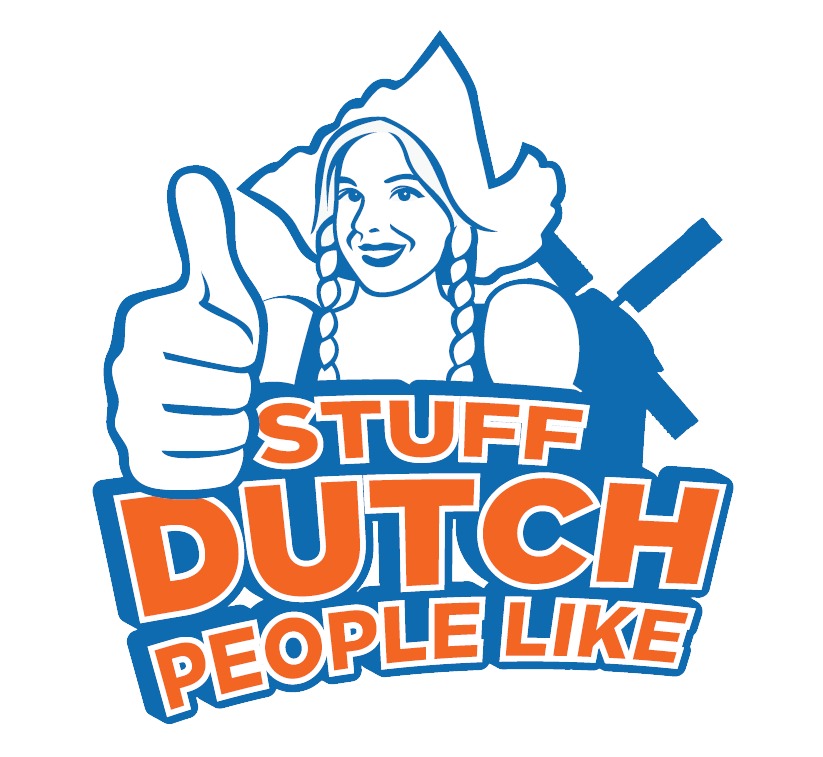
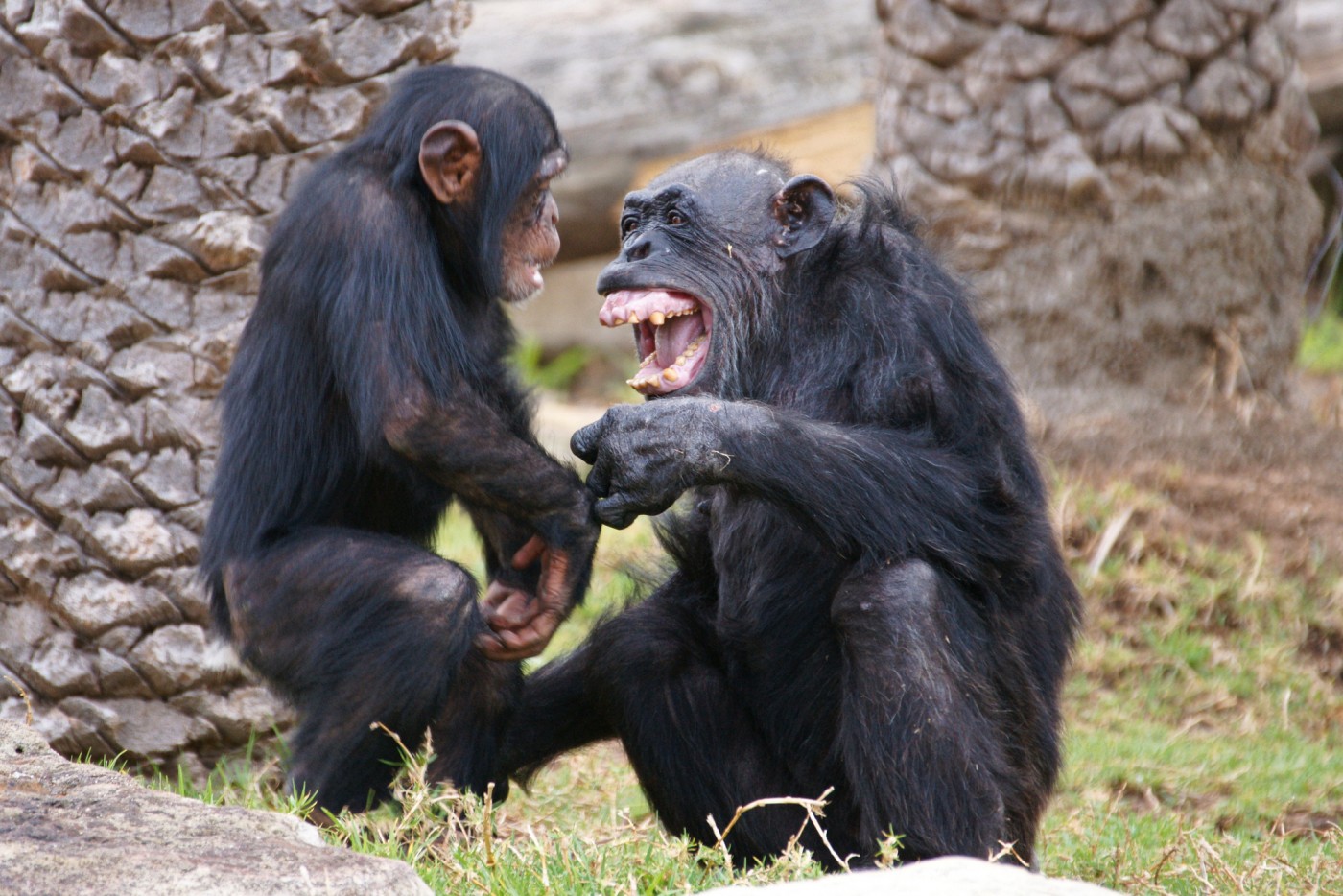
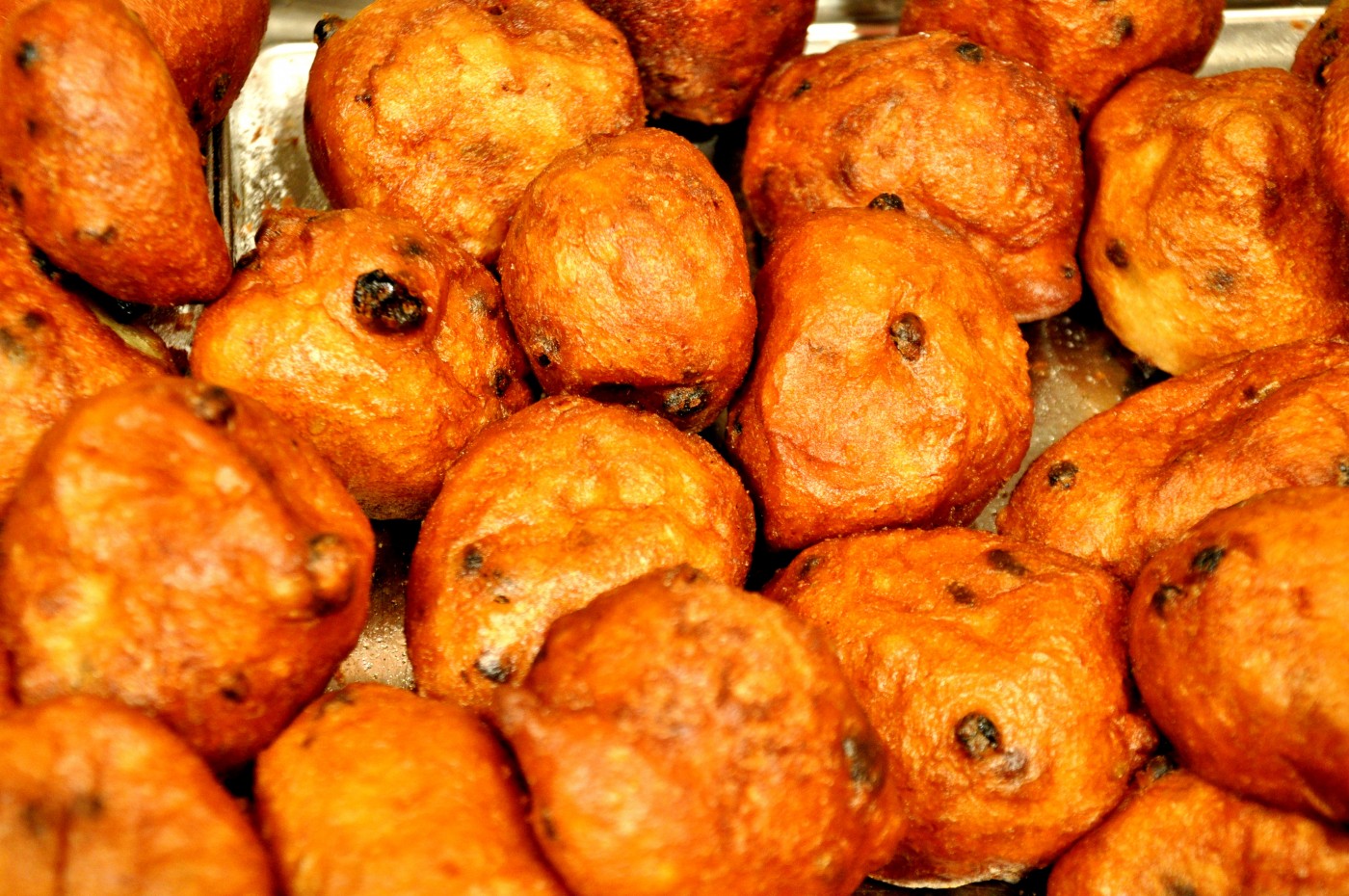



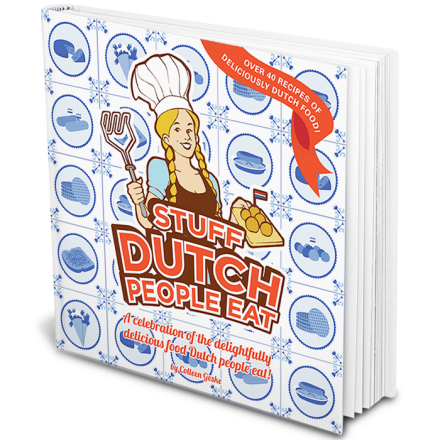
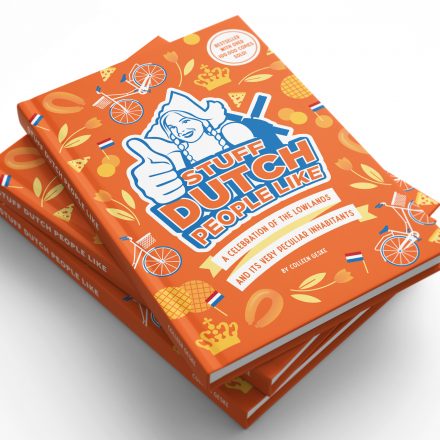
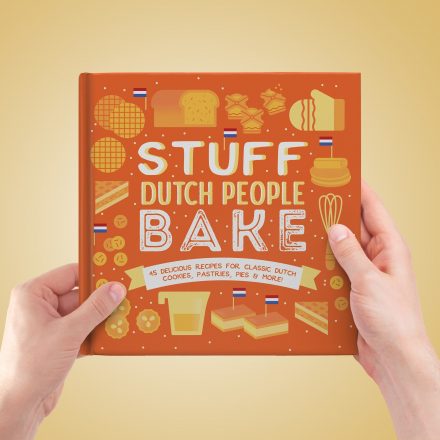
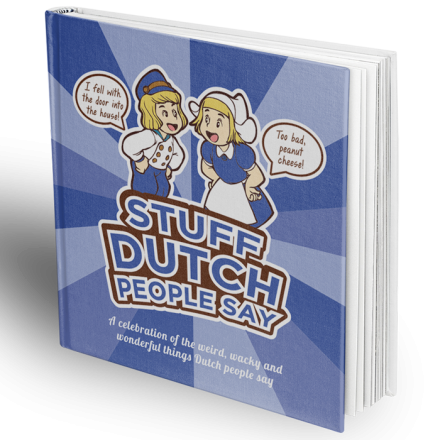
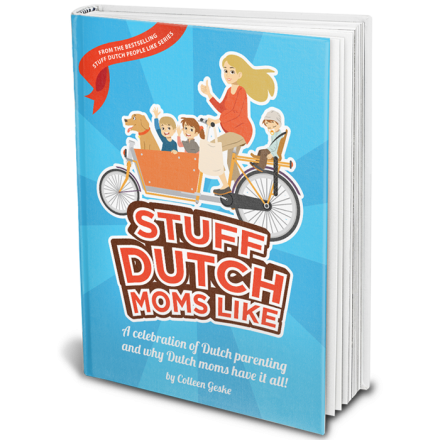
I’m dutch, and I honestly have never heard of the two examples you give. But, that doesn’t matter very much… I just wanted to say, your expressions don’t make any sense in Dutch either, for example: I just can’t wrap my head around it.. If you translate that, well, in Dutch it just doesn’t make sense… “Je hoofd eromheen slaan”?!
It’s that I learnt English, otherwise I wouldn’t have any idea what you were talking about.
Anyways, I really like the way you write these posts and how observative (correct me if I don’t spell it right, I don’t really know how to spell it, and even if it’s the right word) you are.
I’ll keep following you!
Or I have there a hard head in. I doubt about it. I can’t wrap my head about it is I can’t reach it with my head? Ik kan er met mijn hoofd niet bij? Some translations are hilarious.
wrap my head around it means contemplate it. Think a lot about it
I believe the work you want is “observant.”
I am also Dutch and I was cognisant of all aforementioned examples.
Rap my MIND around it
You ‘rap’ or you ‘wrap’?
“It’s that I learnt English..” — really?!
Not cool
” ‘Learnt’ or ‘learned’?
These are alternative forms of the past tense and past participle of the verb learn. ‘Learnt’ is more common in British English, and ‘learned’ in American English.”
from Oxford Dictionaries.
Naughty… ?
“well now the monkey comes out of the sleeve!”=Well now the cat’s out of the bag!”/”You can’t make chocolate from it!”=”You cannot make a silk purse from a sow’s ear!”/And well you already got the one about: “He who has butter on his head, should stay out of the sun”=”People who live in glass houses should not throw stones”=”That’s just jumping from the frying pan into the fire!”/”Oh well, Peanut butter!”=Aww crawdad!=”Oh crap!”/”If it rains in september then christmas will be in december.”=When my milk check come in”=”When the crop money comes in”./” If the sky should fall, we will all be wearing blue hats”=”We’d all be in the same boat”. I love it that we’re all basically saying the same thing, but in different ways, but…it’s still the same thing, which brings out even more similarities and oneness.
Thanks for that. If you think abt them for a moment, they’re not difficult to work out – or just enjoy. The blauwe pet/ blue caps one is fabulous – so too the monkey. “Now the monkey comes out of the sleeve!” is splendid.
Guys – it’s not these idioms you’ve got to worry about: it’s everything else!
I believe “If it rains in September, Christmas is in December” to mean an obvious certainty.
Your examples sound more like things that are a long way ahead (in time) or might not happen at all.
Luckily I’m not verry often in England (being Dutch)… and even more luckily it didn’t rain much when I was… Cause in England it rains cats and dogs… rather dangerous it seems too me…
In The Netherlands it rains pipe stems (pijpenstelen). I think getting one of those in your eye is no fun at all.
Ik kan er met mijn kop niet bij = I can’t wrap my head around it.
“But, that doesn’t matter very much” (Maar dat maakt ook niks uit) is a good example as a (too) literal translation that doesn’t really work.
Please tell me you did that in purpose… ?
Nooo, the English expressions always make lots of sense 🙂
A quote from above: “Some I still can’t wrap my head around”.
Let’s not try that one 😉
Touché!
Rap my mind around it!
Its HEAD… .really
Jaa sommige spreekwoorden slaan echt als een tang op een varken ^^
ja als een pik op een een drumstel
als een verlostang op een maagd 🙂
Hahaha, I just love how ridiculous some of there expressions are especially the english translations, I have to admit the monkey comes out of the sleeve had me guessing as well, but coming from South Africa and speaking afrikaans that is a direct translation that makes no sense. The Afrikaans saying is: Die aap uit die mou laat meaning to tell a secret or reveal a suprise.
It means the same in dutch 🙂
In our area in Canada that would be translated with “letting the cat out of the bag”
That would not make one lick of sense in Dutch lol
Well we actually do have the expression: “Buying a cat in the bag”, which means ‘Making a bad bargain’. Maybe they are related somehow?
buying the cat in the bag comes from the time people got scammed trying to buy a rabit to cook. when the head , tail and feet are removed from the cat there’s almost no telling whether it’s a rabit or a cat!
Are u trying to talk as if Afrikaans is not more or less dutch? I see Afrikaans as Dutch pretending not to be. I can read and understand Afrikaans almost perfectly and I never learnt it. What I learnt to speak was Dutch. Very different from the pidgin english that knowing how to speak proper english alone doesn’t mean u can understand pidgin english. At all..
It´s from people playing for money on the street. The often had a monkey. most of them where train to beg ore just take the money out of your hand. so it means Òh now i see why you were so kindley speaking to me for all this time;`!!
Awesome! never knew.. even though I do use the expression. thanks 😉
my dutch ma in law tells me the monkey coming out of the sleeve goes back to times when ladies kept pet monkeys and would often hide them oin the sleeves of their dresses, sometimes in very inconvient moments the monkey would appear, revealing itself to guests and suprising everyone, its kind of like the penny drops or all is revealed………..thats the only way i can explain it!!!
Nu komt de aap uit de mouw or Now the monkey comes out of the sleeve is from a time where some magicians hold little monkeys in their sleeves that were taught to hand things over in the sleeve to the magician. These monkeys were not supposed to be exposed. So when the monkey was shown everybody knew how the magician did the trick. Nowadays it’s more a saying when someone shows his/her true intentions after trying to avoid the actual subject.
no!
It’s true. Us Dutch people are so convinced of our extraordinary ability to speak English, we often forget our own language is full of expressions and idioms, and will simply proceed to translate them directly. As a half English person I often come across horribly embarrassing examples. Dutch organisations and businesses will be so convinced of their skill in the English language, they don’t even bother to hire a proper translator and instead just do it themselves (this may in part also have something to do with Dutch thriftiness). I recently came across a publication in Amsterdam, geared towards visitors, highlighting all the hotspots and parties in town that week. The articles were so full of Dutch idioms translated directly into English, I cringed with embarrassment. Dutch people would do well to be more modest about their English abilities, and hire a professional translator every now and then.
You speak the truth Sam!
A truth like a cow Sam! 😉
Hahaha ” A truth like a cow!!”
Us Dutch people. Now that is real Dunglish 🙂
I am a dutch undertaker (ondernemer) ! Minister van Agt
hahaha! nice. Me too 😉
23 years ago I had a professor who spoke great English for his age but, his ability to edit his own English writing was not so great. He would insist, insist that an odd sentence he had written in English was correct and the ONLY way to say what he meant.
Along with thriftiness I would add unrealistic or perhaps clueless certainty in being right? Oddly, this sounds a lot like the right wing political party in the U.S.! One could not be less Dutch than that. Yet, that certitude about some things is there.
I’m a Dutchie living in Australia, but some of the examples you’ve used, must be very recent, ’cause I’ve never heard them. The one about the monkey is indeed typical Dutch 🙂
I think you should also read the book I always get my Sin or We always get our Sin too.
One of my favorites: “My compliments to your cock for the lovely diner”
Or as my mother-in-law said to the head chef of an Oyster Bar in San Fransisco’s gay area as she was leaving, at the top of her voice with large arm gestures: “The great cock!”
I believe former prime minister Wim Kok (already a slightly problematic name in the English-speaking world) once talked to Bill Clinton about how he was interested in fucking horses (paardenfokken; breeding horses)
http://www.youtube.com/watch?v=AotuWLW7yTo
On 1:04 a deliberate Dunglish expression (AFAIK this was widely used by *everybody* after this commercial…
Prachtig!
What about: Vier en vijf is niet genoeg (Four and Five is not enough). My grandfather used to say this expression ALL the time and I never got it (although I am a Dutchie myself)
Never heard it before!
Some expressions are more common in certain city’s. Like “vier en vijf is niet genoeg”, that;s typical for Amsterdam. That;s why some people never heard of it. The same as “helaas, pindakaas”. Which I don’t think is a real expression or a Idiom.
Pinda liep langs spoorwegbaan
Daar kwam plots een treintje aan
Pinda keek niet uit helaas
Tuut tuut tuut….. pindakaas!
a rhyme about a peanut being crushed by an oncoming train to peanutbutter is the origin of ‘Alas peanutbutter’
This was probably after seeing your report card….the highest number was an 8! so a four or five was not good enough!
In education we use a rating scale 1 – 10. 5 = doubtful, dubious. 4 = insufficient. 10 = excellent (but that rating is voor gods). 9 = the teatcher. 6 = just satisfactory. So 5 and 4 are not good enhough.
Yeah! The teacher had great teats.
It works the other way around too 😉 If you’re telling dutch people it’s raining cats and dogs, than we’d think you’ve gone crazy. An amazing example of translating english expressions to Dutch is Asterix en de Britten. It’s not funny at all when you’re reading it in English, but in Dutch is hilarious. Why? Because they’ve literally translated some English expressions to Dutch.
Is het, is het niet? Ja, het is!
It is even funnier in the original French – when you know French well enough to understand how the French take make fun of the Brits, with their literal translations of English expressions.
Every language has its own funny quirky expressions that sound very weird when translated literally. Lots of fun.
just to clarify the dutch proverb:
Als de hemel valt, krijgen we allemaal een blauwe pet. This means that your argument is highly unlikely.. (http://www.hoedenenzo.nl/spreekwoorden-en-citaten.html)
But to be honest, I do not know the meaning of ‘Als het regent in september, valt kerstmis in december’ and I am a Dutchie.
Kerstmis valt in december, in september regent het.. vertel me iets dat ik níet weet.
English versions:
“In other news…”
“Is the pope catholic?”
Means that something is entirely obvious.
Throw it but in my cap! 😉
Seems to me, the September/December one refers to the inevitability of both. I imagine you’d say it to someone who has stated the obvious.
you are correct, it means “stating the obvious” or a little more rude “no shit, Sherlock” and your explanation about it is correct too.
Where I come from we have the similar “If ifs and buts were candy and nuts, we’d all have a wonderful Christmas”. Similar to the blue hats.
Also, I imagine the September/December one refers to the inevitability of both. Said to someone who has just stated the obvious…?
Yeah, I also think it means “vragen naar de bekende weg” 🙂
or “kicking in an open door”
Dat moet zijn: Als het regent in september, dan sneeuwt het in december.
It ALWAYS rains in September(and all the other months as well !! ) in Holland, Christmas is always in dec. So the saying means , basically, That it is a sure thing , whatever it was that they were discussing !
It means what SDPL unintentionally said by stating the obvious, but you should look at it the other way around. It’s not the “x-mas is in december” that is so obvious, it’s the rain in september that is always there,
It’s just a joke. Another joke: when it rains in May, April is already past. “Als het regent in mei, is april al lang voorbij”.
Your expression of “Als de hemel valt, krygen wy allemaal een Blauwe pet . This means that argument is Bullshit.
Your translation is spot on Michelle Boon.
I believe that the september/december is like an old weather forecast, it always rains in september. We have a whole bunch of those, like “maart roert zijn staart”, “april doet wat ie wil”, “in mei leggen alle vogels een ei”. Translated to “March turns its tail”, “April does what it wants to do” and “All birds lay eggs in May”. These are all truths about nature in the certain months.
“To fall with the door in house”. A friend of mine once got a small booklet in dutch called “I always get my sin” This little booklet is full with dunglish expressions and wrongly translated sentences
Funny book! Fall with the door in the house. Come in without knocking. Like saying `so youre wife is having an affair!! When meeting .
Is “sorry I was in the war” included?
Whistle of a penny! Oh, let but. Keep him in the gates. Don’t take me in the mailing.
Richard…. Ik smeek om te verschillen, but I think it’s supposed to be “Keep him in the holes” and “Don’t take me in the grinding”.
“Ik smeek om te verschillen” 😀 great!
You make me in the war…
Hahaha, she did take you in the mailing!
Too bad, peanut butter.
Thanks Richard – how could I forget one of my favourites! Helaas, pindakaas!
Aldi sells “pindakaas” of the brand “HELAES”!
Oh, make it now a little!
Just because it rymes Helaas sinterklaas! Aju Paraplu,See you later alligator.
Helaas, pindakaas is a phrase from a commercial of the brand Helaes. 🙂
Wij zeggen altijd onkruid vergaat niet! I just got that expression yesterday. lol
Here in South Africa I heard that translated as There will always be an England.
Ofcourse every language has its own expressions which dont always make sense to foreigners. And if you start to literally translate them, yes then things sound even weirder.
Did you know that a lot of Dutch expressions also date back to the time we ‘sailed the 7 seas’. De beste stuurlui staan aan wal = The best steersmen can be found at the quay. Meaning people who think they know it all, but actually have no experience at all.
And a lot of expressions date back to the time the ‘big guys’ still lived in castles. Op je geld zitten = To sit on ones money. Back in the castle days, the men literally sat on their money (okay, they hid it in the bench on which they sat) to prevent it from getting stolen. Now it has the meaning of being stingy.
I always like to see how the English equivalent differs from our Dutch expressions. We don’t ‘kill 2 birds with one stone’, but ‘kill 2 flies with one smack’. I guess the farmers back then rather killed flies than birds 🙂
25 years in the Netherlands, and the only one of your bizarre examples I’ve heard or read is the monkey one, which is very common. My driving instructor used to insist on trying to get me to say “Hij hoort de melk klotsen, maar weet niet waar de klepel hangt”. He thought it was hilarious because it’s a mix of two sayings, translated from Heerlen dialect, and klepel (the clapper of a bell) rhymes with tepel (nipple). *Sigh*
@IntegratedExpat
As if it wasn’t funny enough when people mix up their saying, now we are tanslating those mashups here in the site, I wish I could stay up and read all this stuff till past midnight!
From the wind, you cannot live… XD (Van de wind kan je niet leven)
Maybe not the wind, but the sun!
Ah, yes: for free does the sun come up!
Lol….too funny that these expressions have made you smile in wonder, fortunatly the english expression “when the shit hits the fan” makes much more sence to us then ours do to you.
And I’m sure there are many more that will make perfectly good sence to us.
One more to leave you wondering about ” if you ain’t Dutch, you ain’t much”…..lol.
Love this site….keep it up, always makes me feel proud to be Dutch.
I have no clue what I just read, but I loved it! Can’t wait to get my dutch boyfriend to explain it all to me!
Well, to be honest, they don’t make any sense in Dutch either. Some expressions just don’t make sense period. You just know what is meant, but there is no deductive way to understand the logic behind it.
You can’t make any chocolat from the expression “you can’t make any chocolat from it”, so basically it means, it doesn’t make sense, there is no coherent reasoning or anything. It’s a mess.
The English equivalent would be “you can’t make heads nor tails of it”, which never made sense to me (no pun intended)
And I’m totally with Dickens who said in A Christmas Carol that he didn’t know what made a doornail particularly dead (as dead as a doornail).
I get “keep your pecker up” ever since I very inappropriately used it to try and cheer up a female Irish colleague. :-0
Dunglish:
You cannot sit down by the packages.
John’s Farmer Whistles English of curved-toes-englishn
Not exactly dunglish, just not very tasteful/wise is what I read in a book commissioned by my then employer: Sitting on a dyke looking around me…
Probably that one comes from the fact that in ancient times doornails were hit into the door from the outside. Then the sharp tips would stick out on the inside, and would be bent to prevent outside people to pull the nail out of the door?
I have some explaination for the monkey that comes out of the sleeve; that’s when a magican does a tric wrong and we see this monkey coming out of his sleeve. Some other, having butter on his, her head means that you are guilty too. Don’t ask me why I can’t make any chocolat from it. And when the sky fall we all wear a blue cap , is a platitude. It ‘s when people say : what if ,what if and hesitate; the answer is what if the sky fall? Exactly!
Some sayings are based on historical events or persons: talking like Brugman ( a vicar) : you can talk like Brugman, but it won’t help you that’s like fighting against the Bierkaai it’s to pump or drown (marine) or do you search for nails in low water? You won’t hear any rooster (biblical) but people will look at you with Arguseyes (mythological) and you wil be the bitten dog.
And so I can go on to Saint Jut’sday but doesn’t every language has his own sayings and expressions.
And for the webmaster I have the suggestion to give some attention to the second language and province Friesland/Fryslan. Because to make it really a ball in Holland there is a people in the north who are a different case. I should know I am a Frisian myself and we say Butter, brea en griine tsiis wa dat net sizze kin is net in oprjochte frysk/ Butter ,bread and green cheese who that not say can is not an rightious Frisian. I will leave to the biding of the internet with that.
I’d lived in Amsterdam 10 years and considered myself fluent in Dutch, as did many of my friends. Then I went to a publishing bash at the West Indischhuis in Amsterdam where I touched in speech (raakte in gesprek) with a philologist from the UVA. After we’d exchanged mythologies for a while he stopped me; “It’s weird”, he said, “you speak fluent Dutch, and yet you don’t speak Dutch at all!”
Confused, I asked him to explain. “Your Dutch is superb, but you use absolutely no idiom, and Dutch is at least 50% idiom.” He proceeded to explain and from that evening I changed my approach to the language.. That was 27 years ago.
Thanks to the heart he stuck under my belt I now truly have Dutch under the knee and I’l fight a rubber with anybody who gives me unequal.
Mind you, if the need comes on the man it shall be me all a sausage! As for English idioms, that’s different cheese than peanut cheese.
Your other points, the Dutch colleague who literally translates idioms and the apparently meaningless idioms; despite popular opinion, the Dutch do have a sense of humour it’s just that a) it’s culturally inspired and radically different from that of English speakers and b) it sucks.
Incidentally, my philological friend explained that his opinion was that, as a trading nation, commercially inspired, the Dutch are frugal in everything (strakgevuiste buitenchtelijke kinderen – tight-fisted bastards – we can play that game too!) and the ability to convey a total concept in a handful of words fits perfectly into this frugality, which, when you think about it,, knocks like a bus!.
Too right about the sense of humour, Bill! I and many Dutch people find it very funny to literally translate Dutch sayings into other language or even simply modify the pronunciation (das macht doch kein flauss aus – steinkohlendeutsch). But it all has to be said with a straight face as if you’re serious. And then the other person answers with a translation/pronunciation of their own, and it all evolves into a completely nonsensical conversation. Your comment is a superb example and it made me smile, thank you!
“Thanks to the heart he stuck under my belt” Luckily we have a similar expression in Dutch, otherwise I don’t think I would have understood what you meant. 🙂
Tim, the expression makes no sense in English! it’s a literal translation of “‘n hart onder de riem steken”. I refer you to my comments about the Dutch sense of humour
unfortunately, there is nothing that knocks like a bus (a common mistake made by Dutchies as well). Instead it should be: ‘Dat klopt als een zwerende vinger’ (that knocks like a sore thumb) and ‘Dat sluit als een bus’ (that closes like a can).
But as with every common used wrong expression, the dikke vandale (always fun if you read this wrong) published this expression in 1995, so actually, you’re allowed to use it. Lame.
http://www.onzetaal.nl/taaladvies/advies/dat-klopt-als-een-bus
I like how you translated ‘klopt’ with ‘knocks’ when in the context, it should of course be ‘throbs’.
@Igor someone who has butter on their head possibly comes from the same root as the English expression “butter wouldn’t melt in his/her mouth” meaning that the don’t get warm or blush when they’re telling bare faced lies.
If you say that someone has Butter on his head -in Dutch- it means that he puts the blame on other people but that he himself is not free from blame. If you dont want to be criticized make sure that your own behavior is impeccable. If you dont want the butter to melt on your head, you should not walk in the sun.
Yes i was going to say it’s more like the English expression “People in glass houses shouldn’t throw stones”
Comes from the egyptian custom to literly wear butter on your head by wealthy ladies!
Or it’s just very practical advice for people smuggling butter under their caps. Which was frequently done in the part of the Netherlands I live in (close to the Belgian border) during the war. Women used to smuggle the butter under their skirts. If you got caught, they would take you to a very warm room and make you sit next to a burning stove, or in summer, make you stand in the sun. If, after a while, they noticed butter dripping down the cap or skirt, you would be arrested.
Saying someone has butter on his head, probably comes from the same story. I can certainly understand someone smuggling butter (big offence in those days) blaming someone else, just to not get caught.
The smuggling story is for real btw. The smugglers even had wooden shoes with a backward footprint on the bottom, to confuse the cops, soldiers and borderguards. How’s that for Dutch creativity! 🙂
now my clog brakes…
Your piece inspired my to search for an article which appeated in “Het Parool” nearly 30 years ago, and the intertubes didn’t let me down:
http://www.esrac.ele.tue.nl/~martijnp/thumbie.html
Might want to check out @dutchspeakwords on twitter; I think you’ll love it. 😉
“I can barely knot a rope to it.” Haha.
I’m Dutch myself and I always hardly can’t sustain myself not speaking in idioms to my foreign friends. But that’s because I know it doesn’t make sense in English. But there are also examples that are (almost) similar in multiple languages…. I.e. “If looks can kill”.
Also I have to admit I haven’t heard about all of your examples. Mind you that some are more frequently used in specific regions (however small are country might be). And a lot of people don’t know the correct idiom and sometimes mix them all up! Which can be mind boggling and hilourious for Dutch people too.
Love your blog though! It makes me proud and ashamed of being Dutch 😉
I am dutch and have always lived in the Netherlands, but I have never heard of any of your examples except the one about a monkey out of a sleeve. And let’s face it: in every country (and I mean every) there are weird sayings that people from other countries don’t understand 🙂
What is very funny though is when some dutch people try to say something in english and they just say the english word in dutch! But that’s also true for english people trying to talk dutch (and french people speaking spanish etc.)
Remember “the Englishman who thinks he speaks French” from ‘Allo ‘allo?
The more I learn about English the funnier it gets. Which means we share the same sense of humour. The jokes the English make of the Irish are the same we make of the Belgians.
CRABTREE!!! 😀
I think ,what Maya says is true , sayings and expressions are not typical weird in dutch .
Some american slang and cockney-english is much weirder. Every culture has its own.
[I like the belgium-flamic dutch speakers for their idiom and sense of humour and they use our common language even better as it always shows on the National Dictee and quiz-shows like 10 voor taal.]
Ja, haha, in zeeuws vlaanderen, heb er net 21/2 jaar doorgebracht.
I remember my dad mentioning a Dutch saying that translates to something like, “Well you can go sit on the roof with a little bunch of onions.” Familiar to anyone?
“Sit on the roof” or “take a walk to the gasstation” (meaning “get lost”) is familiar, but the onions??
I think “pomp” in “loop naar de pomp”, means water well.
Yep, familiar: “Ga toch lekker met een bos uien op het dak zitten”…Haven’t used this expression for yonks though
When I was working for GE I used to have great fun literally translating Dutch sayings in English for those Americans, and watch the puzzled expression on their face.
E.g. in a casual conversation, observing “It is real branch weather today” (Takkeweer).
Still can’t help smiling.
This sounds so familiar… my mother too, when we were in the US. When people asked where we stayed, my mother answered with “we’re sleeping around” (we slapen in de buurt), with a totally neutral face. While she meant “we stay somewhere in the neighbourhood”.
Another expression… we stayed at a B&B, and my mother asked if it wasn’t uncomfortable “having all those people over the floor” (al die mensen over de vloer hebben), totally neutral face, that was the funniest. My sister and I laughed, while the lady from the B&B just nodded and smiled. Of course, my mother just wondered if the lady felt comfortable with all kinds of people staying in her house.
Well, you mentioned the expressions relating to the endearing Dutch weather, here’s a great example of a TV commercial of an energy supplier that is investing in generating electricity from the wind. It shows we are aware of our peculiar expressions and especially the bad translations of it. 😉 http://www.youtube.com/watch?v=JCev-oJAAWM
don’t shave everything over the same comb …
Comes from the weavingindustry
You can go on my back and I will not show you the back of my tongue… lol
Love the post keep it up!
I think you forgot to mention the biggest category: the proverbs that come from the time the Dutch were busy at sea.
I saw that a sentence in the movie The Truman Show was translated in Dutch as helaas pindakaas. The sentence was: sorry but no cigar. We asked our English teacher about it, but he didn’t know.
These are the ones I use most is (and my own translations). “Dragging old cows out of the ditch” (or sometimes I just say that someone is talking about old cows) which means someone is talking about something that might have been relevant before but is not anymore. “Like the host is, is how he will treat his guests” meaning that when someone doesn’t trust another person for instance, then that means that someone cannot be trusted himself. A proverb you might want to use on Dutch people is “Empty barrels make most sound” meaning people who know least have the strongest opinions.
The expression is “close, but no cigar”. I comes from the time when fairground attractions gave cigars as prizes on, for example, shooting galleries. If you just missed the centre of the target,you didn’t qualify for the prize, hence “close, but no cigar”. A close translation into Dutch would be “bijna, maar nog niet helemaal”.
Reminds me of an expression my parents used … Jij bent de sigaar. Always took that to mean, “You’re the one who gets the blame.” Any ideas on the origins of this expression?
I’m Dutch and have to say I never heard that one about heaven falling and the blue hats. Instead, I know that expression as ‘als de hemel valt zijn we er allemaal geweest’ (if heaven falls, we’ll all be goners).
how about ‘geen kaas van hebben gegeten’ translated by google as ‘no chease eat’ but it means something like ‘that was beyonds him’
lol
A terrible infant called pieter, sprinkled his bed with a gieter. His father got woest , took hold of knoest and gave him a pack on his mieter
John O’Mill, I pressume?
My Dutch husband said the “daar kan ik geen chocolade van maken” means something like “well, it’s brown and sticky but it’s not chocolate” if you get the idea!
I’m Australian and we lived in his home village, Boskoop (near Gouda in Zuid Holland) for 6 years. I heard loads of these, and he knows the rest that I didn’t know. Maybe they don’t live on in the cities as well as they did in the farming areas. I had previously lived in Germany for 7 years, and expected Dutch culture to be pretty similar but was pleasantly surprised at what a great sense of humour the Dutch have. It has a lot in common with the dry humour of Australia. Blink and you’ll miss it!
Als de hemel valt, krijgen we allemaal een blauwe pet : You say that when someone told you something that very likely won’t come true. Like If I should say ‘tomorrow I might win the lotery’, you would say……….
Als het regent in september, valt kerstmis in december: That is just to state the obvious. It always rains in september in Holland, so…………
He who has butter on his head, should stay out of the sun: This one is a little harder to explain, but i’ll try!: It means that when your conscience isn’t clear you better stay away from critisism, or you’ll wind up getting hurt. (Butter won’t protect you from getting sunburnt).
Helaas pindakaas is made up by a kid, about 20 years ago. Maybe he did not like peanutbutter???….
And as a final touch God created the Dutch
Al klinkt een spreekwoord nog zo raar, als het rijmt, dan is het waar.
Boontje komt om zijn loontje, ook zoiets dat rijmt.
Wie goed doet, goed ontmoet
Nice! You should also take a look at some of the books written by John ‘o Mill, hilarious!
Maybe I can shed some light on “helaas, pindakaas!”
In my opinion it refers to the sad adventures of “Pinda” (peanut) in a well known childrens song:
Pinda liep langs spoorwegbaan,
Daar kwam toen een treintje aan
Pinda keek niet uit, helaas
Tuut, tuut, tuuut…pindakaas!
There are many more couplets, but this one made its way to the managementtable, meaning: Tough luck!
Tineke, I was breaking my head trying to remember the chad’s name!
“De Nederlander Jan van der Meulen publiceerde vanaf 1956 onder het pseudoniem John O’Mill diverse poëziebundels in steenkolenengels. Hij noemde de taal Double Dutch, wat Koeterwaals betekent.”
http://nl.wikipedia.org/wiki/John_O%27Mill
yeah that’s in Dutch, alas, peanutbutter indeed.
I’ve never heard anyone say ‘oh well, peanutbutter’, we always say ‘unfortunately, peanutbutter’. I think that sounds more accurate..
In Belgium, we say “… en als de hemel instuikt zijn alle mussen dood.” (and if the skies cave in, all sparrows will die.) in stead of “Als de hemel valt, krijgen we allemaal een blauwe pet.”
But most languages have a colourful set of idioms right? The English “to kick the bucket” is a good example, and I have been surprised by native speakers of English on occasion too.
Nou breekt min klomp. I even used to say this to my whole staff here in new York. ( Now breaks my wooden shoe). Meaning, I am flabbergasted.
My girlfriend translates ‘Helaas, pindakaas’ with ‘Pitty peanutbutter’.
By the way: recently a new brand of peanutbutter emerged at our discount shops: Helaes Pindakaas, http://woordgek.nl/wp-content/uploads/helaespindakaas.jpeg
We have a funny TV show called Neon-Letters that has a sketch about a guy who presents the weather. In dutch this is a “weer-man” Litteraly translated “weer” translates as “again”:
” Ik doe dat weer” = “I’m doing it again”. “Man” obviously translates as “man” His translation of “Het Weer” is not translated as “The Weather” but as “The Again”
Watch the clip on http://youtu.be/PAXWamrgy7w?t=1m3s
I see your examples and raise you: “Bob’s your uncle.”
This is just so coincidental, we have the book : That takes the cake, phrases explained by R. Brasch. Bob’s your uncle(which is an Australian expression) is in that one. As I have been living in Australia for 32 years and Dutch is still my first language I really enjoy all this.
Sorry, it’s English of course. Meaning, all will be well, you can always go to a bobby (policeman)
Klaar is kees!
Don’t quit understand the fuss about the monkey is out of the sleeve, it has the exact same meaning as “the cat is out of the bag…”
Shit on the marble !!!
Holy smokes, looks like I am talking to myself here. Anyway, the “stront aan de knikker” saying I heard first spoken by Freek de Jonge, a Dutch comedian. It seems obvious in terms of meaning: just imagine handling a marble with shit on it, not a good thing.
My brother-in-law loves repeating Dutch expressions in bad English. He even over exaggerates his accent while doing it. I know quite a few Dutch people who enjoy doing that.
I have to say, I really like a lot of the Dutch expressions. They are so weird. Although they must think that of our English ones.
Another monkey expression: I’m monkeyproud (Ik ben apetrots)
Al heeft een aap een gouden ring,het is en blijft een lelijk ding!
Now the bullet is through the church
Shotgunwedding!
You can write that on your belly!
Meaning you can forget about that! (no way this is going to happen, you’re not gonna have your way)
Ha! I do that in Spanish all the time!
My two lolest: Es como pastoreado los gatos (it’s like herding cats – which was great because we were actually trying to herd my neighbours cats into the house and still no one got it) and I don’t want to be a wet towel (No quiero ser una toalla mojada – Which even my English boyfriend didn’t get)
I’m half dutch btw but I grew up in Bermuda so all my idioms are English 😛
Helaas pindakaas = to bad sandwichspread 🙂
Thing is: the sheer nonsensicality makes it funny. At home we have the habit of mixing up several expressions in Dutch which basically has the same effect as literally translating to English. Everybody knows it’s nonsense but that’s the fun of it. In any case, English expressions are often as enigmatic : “it’s raining cats and dogs” ….huh ????
You guys should check out Hanging Noodles!
http://bit.ly/ZfCAX4
Idioms from around the world.
Maybe someone mentioned him in the above comments already but you should really read the poems of John o’Mill (Johan van der Meulen). They are so funny and at least 40 yrs old. 🙂
Yutt and Yull
“You’re always blutt”
said Yull to Yutt,
“for reason you
ain’t got no futt.”
“Shut up, Old Trutt,”
said foul-mouthed Yutt,
“I gotta do
my midday-dutt.”
and
The Prall
If, with all your grand decorum
you hope to fool me, piece of scorum,
you must be badly in the lorum
or, if sober, plain crank yorum.
With music blaring from your car,
in the keelsog of your great cigar,
I know you snob for what you are
a loud-mouthed, vulgar poon-barbar.
Pete’s Knot
Three arrogant pupils of Class Five 3
attempted to drive the spot with me,
but I had ‘m through
and before they knew,
I set ’em for Pete, Pete Snot, you see.
I have thoroughly enjoyed the above. After living in Australia for 32 years, Dutch is still my first language. For English speaking people I would recommend the book ; That takes the cake by R. Brasch, with phrases explained.
O I did see someone else metioned him too. Helaas pindakaas. Bummer. Hose nr 11 sprays mud again. (spuit elf spuit weer modder)
That should be “Oil derrick #11 sprays mud again” 🙂
Spuit 11 geeft ook modder. The last firepump to get on te scene ,much too late and didn´t even pump up water just mud. Meaning after a long discussion someone gives an opinion thats totally irrelevant
How about – what do I have hanging on my bicycle now?!
The Dutch Helaas pindakaas is not that dissimilar as to the English (or should I say Australian?) Copy cat from Ballarat, meaning both rhymes nicely and nothing more
These posts are very funny. I translate into English all the time. Last night I said to my neighbor “we forgot the best horse in the stable.” It took me a while to explain that one.
Some Dutch expressions are just not suitable for translation…..helaas pindakaas is one of those that has absolutley no meaning in English. In dutch…it does. It just means ” Too bad”…..they added pindakaas because it rhymes. Just like you can’t translate the American expression
“tough titty” into dutch. Sterk Borstje Jan…HUH…WAT BEDOEL JE…?
and my favorite if glares could kill i would be a cheese sandwich by now
als blikken konden doden, was ik nu een broodje kaas
A few years ago an old lady explained to me the “helaas, pindakaas” expression… so if no one in 110 comments has done it, I can explain. 😀
Yes, will you please explain? It is not 110 comments maybe, but many months, so please take pity?
An American friend of mine complained to a Roermond hotelkeeper that the bathroom in his room was too small: “Not big enough to swing a cat in.” The hotelkeeper looked soberly at him: “You’re not allowed to have pets in this hotel.”
It’s probably an economical way of speaking. Why invent your own sentences if there already is an expression?
Another one from John O’Mill: He was brave in the war. (Hij was braaf in de war.)
And “Daar stond ik met mijn mond vol tanden.” (There I was, with my all my teeth in my mouth.) Meaning, “I had nothing to say” or “I didn’t know what to say.”
‘Als de hemel valt, krijgen we allemaal een blauwe pet’, I think you can compare this with the English expression: ‘If Pigs can fly’.
Lot’s of expressions (and statements for that matter) in dutch start with “je”. I have often exidently translated “je” in english with “you”. I confused lots of English speakers with that since they took it personal. I figured out that by translating “je” with “one” saves lot’s of confusion.
“when you are in the Netherlands, you use lots of sayings”. What? me? but I don’t even speak Dutch?!
Hey there !
Fun to read, some of it is really accurate (some of it not so much 😛 )
To indicate how much i enjoyed reading your posts > it made me miss my 18:00 dinner …. 😉
Cya 🙂
My favorite: If your aunt had balls, she would be your uncle. Although I am Dutch, when I was younger I was fairly puzzled by this expression.
How about: Gekken en dwazen, schrijven hun naam op muren en glazen.
I read all of the comments and loved it! One that i missed is ‘go a head with the goat’ ‘vooruit met die geit ‘ or ‘if the cat is out of the house the mice dance on the table’ ‘wanneer de kat van huis is dansen de muizen op tafel’
Thanks for this great post! I am always thrown off when my Dutch husband throws in one of these during an argument – “Zoals de waard is, vertrouwd hij zijn gasten” (So as the inkeeper is, he trusts his guests )” and “Spijkers op laag water zoeken” (Seeking nails on low water). It could be a North Holland thing – my husband uses idioms all the time.
Nails in old ships were handmade and therefore expensive. You could find them on the bottom of the water at the coast by low water.
There are tons of expressions that don’t make sense. Recently I met with a Dutch client (well known large bank) where a senior executive said, that we will have to do it with not one but two fingers in the nose. My English colleagues were totally shocked and were looking at me as they had no clue what he was referring to. Doing something “met je vinger in neus” is also something not to be translated, as it only expresses something that you can do it very easy without effort. Putting then two fingers in the nose is even less effort. After explanation they just shook the heads of unbelieve.
How bout these expressions on wind?
http://www.youtube.com/watch?v=0EjyS6PP-Ro
Ah, you all make me laugh!!! but does remind me of a old colleague chasing our american boss into the office with the comments ‘I have something very big hanging from my pants’, whoops ‘I mean pocket’… obviously mr. usa got nervous and asked for the door to his office be kept open during the meeting. We found no suitable translation or explanation that suited the expression. And for the record yes the pants from which this monstrosity was hanging were yellow 😉
so incredibly funny!!! I remember when i first came to australia, i used to say let’s play a game and let the little one play for bacon and beans!!! ( spek en bonen) but a lot of the english expressions are weird TOO!!!
Hi could you tell me in Dutch how to say “G’day mate! Put another prawn on the Barbie”
please we are going on a footie trip to Holland with our kids and are having a barbie with our Dutch opponents and we were going to print it on our t – shirts, thank you if you could.
my e-mail address is [email protected]
Zonde!!!
Weet je wat zonde is ? Boter op je hoofd smeren en droog brood eten…..:-D
“Hoog op de kast zitten” (sitting high up on the cupboard/wardrobe) = Being angry or indignant
“Je kunt mijn neus uit” (you can get out of my nose) = Forget it, no way!
“Spuit elf geeft ook modder” (oil well number eleven also gives mud) = said when someone unimportant gives their uninvited or worthless opinion.
I was once told that “spuit elf” refers to a fire extinguisher used by the fire deparrtment, meaning no water was coming out of it. Makes more sense, since oil wells are not a historical part of Holland.
Rare vertaling van “Ik kan er geen kaas van maken” => “I can’t make chocolate from it”
Thanks for a great laugh! Here’s a good one…”als je dat gelooft, dan krijg je een fiets” (if you believe that, you get a bicycle) Which I think means “if you believe that, you’ll believe anything”
Also, “het glimpt als een snotteball in het mannescheid” (it shines like a piece of snot in the moonlight). Leuk he?
My husband likes “geen kip op straat” (no chicken on the street) meaning “there’s no one around”.
My (aussie) Dad, on meeting my Dutch mother’s family for the first time, cracked them all up by saying “Groenten allemaal”.
This should provide some useful – and hilarious – cannon fodder for further discussion.
http://www.youtube.com/watch?v=x5ybgCQNSnw
Dutch do it also the other way around. I know a dutch guy who says “stukje taart” is something is “a piece of cake”.
if you want to read a nice book about dutch sayings please read the book : I always get my sin.
I?m not that much of a internet reader to be honest but your blogs really
nice, keep it up! I’ll go ahead and bookmark your website to come back later. Many thanks
The best expression in Denglish I ever heard was in a tv program. Johnny de Mol was sitting outside a tent where Doutzen Kroes was getting changed. He was guarding the entrance and said reassuringly: Don’t worry Doutzen, I will hold the watch… ahahahahahaha.
I was too lazy to read all of the comments but the monkey coming out of the sleeve is similar to the cat is out of the bag in English haha
i am Dutch, living in India. Before playing a game I often say ‘wet your chest!’, nobody understands me, but its funny to me 🙂
Do you know of the 16th century painting by Pieter Bruegel the Elder entitled Nederlandse Spreekwoorden/Netherlandish proverbs?
In it he paints a land where everyone is acting out the proverbs of the era, most of them being about butts and the rest making no sense (e.g. “To be pissing against the moon” and “They both crap through the same hole”). There is a full list of them, as well as more about the painting on wikipedia and elsewhere online!
Here’s the link – http://en.wikipedia.org/wiki/Netherlandish_Proverbs
Well, you think our expressions are weird? Try translating English expressions to Dutch…….like: its raining cats and dogs (het regent katten en honden)?? literary translations of expressions in any language are a guarantee for giggling and laughter. So im not gonna be a hero on socks (held op sokken) and tell you this is a monkey sandwich story! (broodje aap verhaal) 😛
In The Netherlands it rains pipe stems (het regent pijpenstelen).
Funny how defensive some get…of course there are strange expressions in English… but the writer is speaking of the Dutch. Why is it that many Dutch get so defensive when one points something out…
agree, its just funny why people get so defensive I have no idea. I am Dutch and found this article hilarious
Ralph I find it strange because I have found the Dutch Culture to be a sarcastic bunch. In fact your reply is sarcastic.
Can I ask you what is so insulting to you about this article or is it some of the comments? Another question if you are easily insulted why come on a site like this and and get your feelings hurt?
Being an American well I get a good share of American bashing and you know what I never take it personally. You should try the same. Especially when people generalize. It is not about me specifically even if it is addressed to me.
Unsolicited advice given to me by the Dutch: Grow a thick skin if you intend to go on the internet and go on sites like this. You are walking into a zone where there is many different cultures, different senses of humor, views along with some trolls who love to bait people like you. Further more if you are insulted why not try writing specifically to whom insulted you, or what is for example insulting. It is far more effective than ranting.
I have no idea what the hell you’re talking about… All I’ve read here are funny comments, and nothing of it was defensive.
Zorgen te zijn een beetje meer specifiek? (Care to be a bit more specific?)
I was not addressing you… I was addressing someone elses post way back in December of 2013. So what on earth are you talking about???
I enjoy what you guys are up too. Such clever work and exposure!
Keep up the amazing works guys I’ve you guys to my own blogroll.
I love Dutch as well as American country expressions like “as serious as snakebite” – I mean: now that’s SERIOUS! And the Dutch one about: “te gek om los te lopen” – – – I’ll try to translate: too crazy to go without a leash. Thanks for a fun blog! ! !
I love this silliness.
The one I regularly use is: That knocks (Dat klopt / That’s right)
Who ever is interested in more can read:” I want to have my sin “. There’s even a part II ;o)
“mierenneuken” = nitpicking.
Literally it means: ant fucking
🙂
How about the food is so good, its as if a little angel peed on your tongue
or as you begin to eat someone says eat with hooks so you can pull it back up and enjoy it again?
My mom would call a slut a ‘licked off-sandwich’ (een afgelikte boterham). Haha, how Dutch can you get it?
Some of my family’s favorites:
Mierentietjes = goosebumps (ant tits)
Ik ben met en natte vinger te liymen = I can be glued with a wet finger (twist my arm)
Van het kastje naar de muur = from the cabinet to the wall (not making progress; getting nowhere)
You are “hitting two flies with one clap”.
how about making an elephant of a mosquito? (making a big problem of something that isn’t.)
or eating with long teeth (not really wanting to eat it so you eat slowly), feeling someone on the tooth (basically interrogating someone), filling one hole with another (doing something useless), he has had a blow from the mill (he’s mad/crazy). Another favorite of mine is: after the calf drowned, the mute the well (only doing something about it after it went wrong). I just really like proverbs and such…
Some others: Putting your head in the sand (ignoring something/a problem), falling through the basket (getting caught, as in finding out you’ve been cheating for example), taking someone by the nose (playing a joke on them/to lie), finding the dog in the jar (being late for diner and there isn’t anything left), after rain comes sunshine (every cloud has a silver lining? something good will come), carying water to the sea (doing something pointless), having a hole in your hand (spending a lot of money), all routes lead to rome (it all leads to the same end), the salamon’s nose (the best thing/part), there is no butter between them (they don’t get along), being born with a golden spoon (having an easy live/always just getting everything), when two dogs fight over a bone, the tird walks away with it (a third profiting from the fight), it walks in hunderd (it goes completely wrong), binding the cat in the bacon (tempting someone (with something they aren’t allowed to do/have)..), a cornered cat makes strange jumps (people do strange things while fealing threatend), that’s no kitty to take without gloves (that’s not easy), doing something for the cat’s violin (doing something for nothing/no reason), you can hear the gras grow/ a needle drop (it’s very silent), straight for the turnip (being blunt,/ saying what you mean).
But all crazyness on a stick, I think this is enough for now, right?
Are there any books that explain Dutch idioms (in Dutch or English)?
Groot Spreekwoordenboek (in Dutch).
“He who has butter on his head, should stay out of the sun” means that someone whose conscience isn’t clear, should try to avoid being scrutinised. The link between “having butter on your head” and not having a clear conscience is more literal than one might suspect. It comes from times long past when butter was a valuable and scarce commodity. The high value of butter, combined with high import charges in Belgium made butter an interesting commodity to smuggle from the Netherlands to Belgium. Because of the rather strict border control, one couldn’t just carry butter across the border, so smugglers would make a lot of runs hiding a block of butter under their hats. So these smugglers, whose conscience wasn’t clear, literally had butter on their heads.
What is the meaning of pennyclip used in Belgium language
I’m glad others have sayings that make no sense. I am from the sticks (meaning the country, where there is nothing but sticks) and we use many strange idioms: “You’re out of your tree” (you don’t know what you’re talking about) and “Drunk as a badger” (someone who is unpredictable) are my favorites. Great blog.
Maybe it’s because I’m Dutch, but I find some proverbs should be easily understandable to English speaking people if you tweak them a little bit.
Like these:
When two dogs fight over a bone, a third one brings it home.
You better wet your chest! (Because it will soothe the pain after I send you home with a cold shower.)
The best navigators are found in armchairs.
Once the dams have flooded, people fix their leaks.
A cornered cat bounces off and leaps.
From behind you see the cow’s arse (achteraf kijk je de koe in de kont)
My Frisian dad would say the same thing every time we asked what was for supper. It sounded like: steck-en dee mewl
Anyone know what he was saying? He said it meant, whatever it is you’ll eat it.
Yvette,
I think he was saying: “Steek in je muil” in better dutch “stop in je mond” and in English…put it in your mouth.
My dad (Dutch immigrant to Canada, now passed away) used to say something that translated to “that’s like putting a flag on a garbage barge”. I do understand the idea, but does anyone know that one, in dutch?
In dutch: dat staat als een vlag op een modderschuit.
“Its like putting a flag on a mud ship”
i think woold be a good english translation.
Which translates as looking really ridiculous (“it suits as a saddle suits a sow”, according to my English dictionary).
“dat staat als een vlag op een modderschuit.” this translates to either:
“that’s to good for the situation” or “that doesn’t fit”
It is a dutch saying dat staat als een vlag op een modderschip (it is like putting a flag on a mudship) as mentioned below but what it means is A mudship is a metafoor for something low ugly and dirty, the flag stand for pride beautyful and clean.
ugly versus beautiful drity versus clean low and pride ect ect ect
The combination is wrong, the connection is lost.
The mother of the dutch family I lived with a long time ago had some bizarre saying. Mostly when she was exasperated with her children. Something about drowning them in the morning and flushing them down the toilet??! It popped into my head the other day when my own kids were driving me crazy, but I couldn’t remember how it went. They just laughed at the unrecognizable garble that came out of my mouth! Do you know it?
The only thing i can thinknof in this context is:
paste them behind the wallpaper.
Thats what dutch people might say when their children are annoying.
Silence is golden, ductape is silver (and costs less)
sorry to mention but you missed hitting the plank (je slaat de plank mis) You still do not get it 😛 helaas pindakaas (it is saying jammer voor je (to bad for you) or het is niet anders (it is the way it is)but it also rhyme’s and the last part is important because it rhyme’s it is easy to say sounds nice. That is the only reason why it is used. The other with the sky when heaven drops we all wearing blue hat’s it means you made a stupid argument litterly means when the sky falls (sky = blue) it fals on our head and we all have a blue hat.(the sky becomes the hat).
raining in sptember means cristmas in December lol tis means when it raines in September it will snow in December All Metaphor’s
And reading all these sayings they make a bit of fun with you because you do not understand them. After writing this i can say to you helaas pindakaas.
All these saying are like it is raining cats and dogs all metaphoric maybe now you will understand them better.
Try to understand:
– I got it on my hips (ik kreeg het op m’n heupen).
– He looked as if he was hearing thunder in Cologne (hij keek alsof hij het in Keulen hoorde donderen).
Each language has its own expressions which really are very difficult to translate literally. Here in Australia we have expressions such as: “As useless as a hip pocket in a singlet.” or “As useful as an ashteray on a motor bike” Another one is, “A kangaroo short in the top paddock.” “He is flat out like a lizard drinking.”